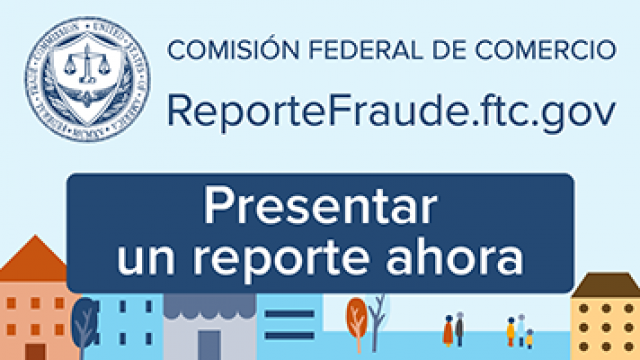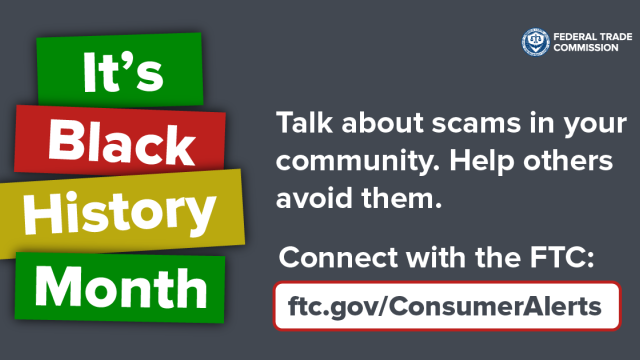Learn about the latest scams, and get advice to help you avoid, report, and recover from them.
Displaying 161 - 180 of 650
Consumer Alert
Is there a legit reason for someone to send you to a Bitcoin ATM? The short answer is NO. Will someone from the government send you to a Bitcoin ATM? NEVER. If you’ve followed this Anatomy of a Scam series, you know there’s more to it than that.
Consumer Alert
As we continue our deep dive into imposter scams, we’re taking a look at a new twist on tech support scams. Ever deal with a tech support scam? A warning pops up on your computer. It says your computer has a virus and gives you a number to call for help. You often end up paying hundreds of dollars to a scammer who pretends to deal with the fake virus. Now scammers are upping the stakes — instead of hundreds of dollars, people are unknowingly handing over tens or even hundreds of thousands of dollars to tech support scammers. Here’s how.
Consumer Alert
One way to spot a scam is to understand its mechanics. A new and complicated scam starts with a call or text message about a suspicious charge on your Amazon account. But it’s not really Amazon. It’s a scammer with an elaborate story about fraud using your identity that ends with you draining your bank or retirement accounts.
Consumer Alert
Scammers say and do things that can tell us they’re lying — and they’re not who they pretend to be. Of course, to hear or see those clues, we have to get past the panic scammers make us feel, thanks to the so-called emergencies they try to create. And since scammers are convincing, that can be hard to do. But recent scams are costing people their life savings, so here are some sure ways to spot the scammer.
Consumer Alert
We expect banks and brokers to keep our money safe. We think they’ll stop or warn us about suspicious transfers out of our accounts. But do they? Scammers are exploiting that trust and getting people to transfer their money and drain their retirement accounts to “protect” or “safeguard” or “legalize” it. The truth? The money gets stolen, and banks and brokers won’t get it back from the scammer.
Consumer Alert
When you log into your bank or credit card account, you might get a text message or email with a verification code. You then enter it at the login screen to confirm it’s really you. That’s a form of two-factor authentication that adds a layer of security to your account — and keeps would-be scammers and hackers out.
Consumer Alert
People are losing big money to scammers running complicated scams. The scams usually involve someone supposedly spotting fraud or criminal activity on one of your accounts, offering to help “protect” your money, sometimes asking you to share verification codes, and always telling you to move money from your bank, investment, or retirement account. And every bit of it is a scam.
Consumer Alert
Recovering from what is now the largest wildfire in Texas history will be a long process. If you’ve been displaced by the fire, or your home or business was damaged, you’re probably trying to figure out what to do next. Here’s some advice to help you get started.
Consumer Alert
That call or text might not seem like a scam. It might look like it’s Apple or Microsoft, saying there’s a problem with your computer. (It’s not.) It might seem like it’s Amazon, saying there’s a problem with an order. (Also no.) It might even sound like your grandchild, calling with (supposedly) an emergency. (Still no.) All of these are scammers. This is National Consumer Protection Week (NCPW) and we’re inviting you to join us in talking about scams just like these.
Consumer Alert
When you have a new romance there’s so much to talk about. But if your new sweetheart only wants to talk about your money and how you should invest it, stop talking. They might be a romance scammer, like those who stole more than $1 billion from people last year. How do the scams start, and what can you do to avoid one?
Consumer Alert
Every day people report to the FTC the scams they spot. Every year, the FTC shares the information we collect in a data book which tells a story about the top scams people tell us about – so we can all spot and avoid them.
Consumer Alert
As record rainfall and heavy winds devastated the West Coast, you can bet that scammers are standing by, ready to get started after the storm. How can you spot the scammers?
Consumer Alert
February is Black History Month — a great time to help raise awareness in Black communities, and among your family and friends, by staying on top of the latest scams that might affect them. We know that talking about a scam helps you avoid it — and it helps people you care about avoid them, too. Connect with the FTC and share what you learn with others.
Consumer Alert
Got an email or text message about a tax refund? It’s a scam
Consumer Alert
Many impersonation schemes start with a call about a routine problem, like suspicious activity in your Amazon account. But in a new twist, the story quickly takes a more serious turn when you’re told someone is using your information to commit crimes and all your money is at risk.
Consumer Alert
With all eyes on the severe weather moving around the country, scammers are paying attention, too. And they’re likely following the path of the storms to target the people affected. So, how do you protect yourself against weather-related scams?
Consumer Alert
Donating is a great way to help people affected by natural disasters like the earthquake that hit Japan on New Years Day. But you know scammers try to take advantage of people recovering, and those who try to help. So, how can you be sure your money goes where it’s needed?
Consumer Alert
Does it ever feel like you’re getting more robocalls than calls from actual humans? Illegal robocalls aren’t just annoying — they’re also often scams. But you might be wondering — how did they get my number in the first place?
Consumer Alert
Scammers follow the headlines — and the seasons. As the new year rolls around, we’re sure to hear lots of “new year, new you” advertising around health and fitness products. But some of those promotions are just scams out to get your money. Here’s how to spot them.
Consumer Alert
If you’ll be seeing college-age relatives over the holidays, warn them about a variation on the “job interview” scam that students looking for summer or permanent employment have reported to us.
Displaying 161 - 180 of 650




